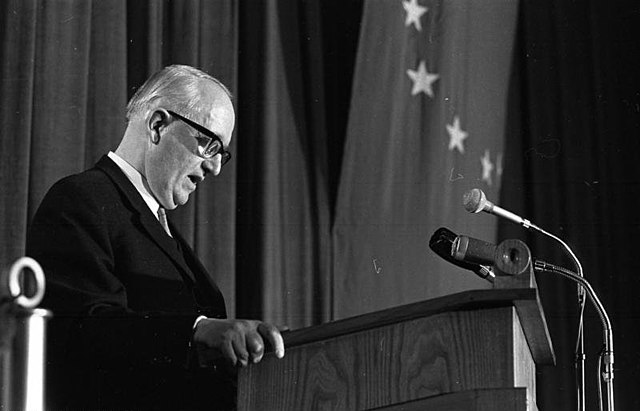The Hallstein Doctrine, named after Walter Hallstein, was a key principle in the foreign policy of the Federal Republic of Germany from 1955 to 1970. As usually presented, it prescribed that the Federal Republic would not establish or maintain diplomatic relations with any state that recognized the German Democratic Republic. In fact it was more nuanced. There was no public official text of the "doctrine", but its main architect, Wilhelm Grewe, explained it publicly in a radio interview. Konrad Adenauer, who served as Chancellor of Germany from 1949 to 1963, explained the outlines of the policy in a statement to the German parliament on 22 September 1955. It meant that the Federal German government would regard it as an unfriendly act if third countries were to recognize the "German Democratic Republic" or to maintain diplomatic relations with it – with the exception of the Soviet Union. The West German response to such could mean breaking off diplomatic relations, though this was not stated as an automatic response under the policy and in fact remained the ultima ratio.

Walter Hallstein
Walter Hallstein in 1969, accepting the Robert Schuman Prize.
Konrad Adenauer in Moscow, 1955
GDR leader Walter Ulbricht in 1965 visiting Egypt.
Walter Hallstein was a German academic, diplomat and statesman who was the first president of the Commission of the European Economic Community and one of the founding fathers of the European Union.
Hallstein in 1957
Hallstein was taken prisoner by American troops in Cherbourg in 1944
The Palais Schaumburg (1950), seat of the Federal Chancellery in 1950, where Hallstein worked before the German Foreign Office was formed
1955 German Foreign Office building







